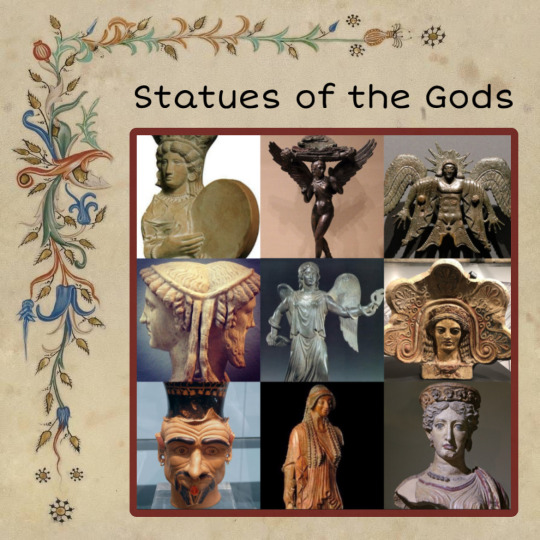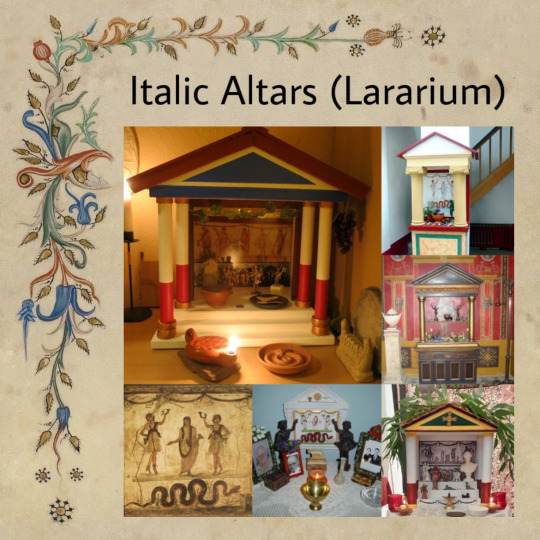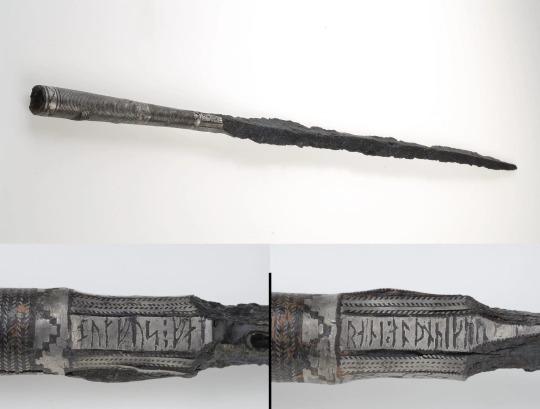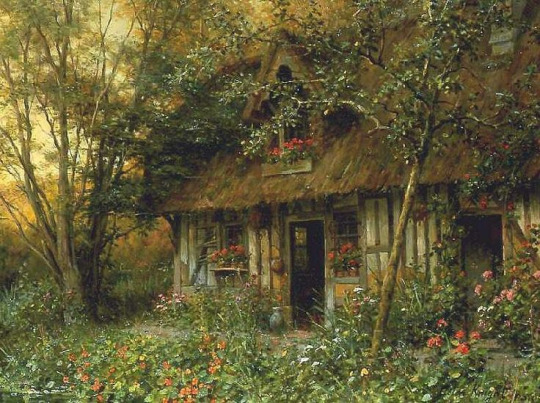Norse polytheist with an open question box! • guided by Freyr and devoted to Freyr •Fascists, white supremacists and homophobes DNI #allfathernotsome
Don't wanna be here? Send us removal request.
Text

A Guide to Italian Polytheism 🌿 🐺
Italic or Italian Paganism / Polytheism is the term to indicate the worship of the different native Gods of the Italian Peninsula or a specific Italic pantheon and all its religious practices.
The beliefs and Gods come for the most part from Etruscans and Latins, but on a minor scale Veneti, Sabines, Samnites, Oscans Umbrians, Ligures etc. too.
Italian Polytheism usually refers to pre-Empire and pre-syncretism native beliefs but most of the traditions and Gods of the Roman Religion (before the syncretism) are directly based on Etruscans and Italic populations (like the Latins, whom the Romans come from)
𓂃˖ ࣪⊹ Key concepts:
Numen (plural - Numina): in Latin means "divine will" or "divine power." In ancient times, the term was used to refer to the presence of a divine force in a place, a person, or an object. It is not a specific god or goddess but rather the sacred presence or influence that makes something holy or divine.
Hinthial: Etruscan term that refers to the spirit or shade of the dead, representing the soul that persists after death in funerary and underworld contexts.
𓂃˖ ࣪⊹ Spirits:
In Italic beliefs, particularly in Roman and Etruscan traditions, the Genius (Latin name) or Farthan (Etruscan name) represents a personal divine spirit associated with an individual that is created with the birth of the person and stays with them till death, it is often seen as a guardian, protector, or embodiment of one's vital force or destiny, kinda like a more ancient version of the guardian angel. It was often depicted as a youthful male figure, usually winged, sometimes holding symbols of life, power, or fertility- such as a patera (libation bowl), cornucopia, or serpent.
Vanth: Winged female spirit of the underworld, guides souls of the dead. Often shown with torches, keys, or scrolls.
Charu: Male underworld spirit (very different from the Greek Charon) he is depicted as a fearsome, monstrous figure with blue or black skin, pointed ears, fangs or tusks, sometimes horns, and often wings. He carries a large hammer or mallet and has a menacing, grotesque face that embodies the terrifying aspect of death. He is the Guardian or enforcer in the realm of the dead.
Lasa (plural: Lasae):
Female guardian spirits, associated with fate, beauty, and protection. Often winged, accompanying other deities or mortals.
Thuluter:
The divine gatekeepers, represented side by side, one facing the other with their backs turned, standing guard at the boundary between heaven and earth.
Lares: Household protective spirits (Lares Familiares). Also Lares Compitales (crossroads), Lares Praestites (state protectors). Often honored in domestic shrines (lararium)
Penates: Spirits of the pantry or food storage, ensuring domestic well-being. Worshiped with the Lares, especially during meals and family rituals.
Manes: General term for the spirits of the dead (ancestral spirits). Honored during Parentalia and Feralia festivals.
Lemures: Restless or malevolent spirits of the dead. Feared and exorcised during the Lemuria festival in May.
Larvae: Sometimes considered interchangeable with Lemures, but more malicious. Ghosts or shades that disturbed the living.
Camenae: Water and prophecy spirits, sometimes guardians of sacred springs or inspiration. Some mythological figures associated with the Camenae include:
Carmenta, Egeria, Antevorta, Postverta
Lymphae / Diumpas: spirits connected to water in ancient Italic mythology associated with springs, rivers, and healing waters.
𓂃˖ ࣪⊹ Key Figures:
Tages: He is considered the sacred prophet of the Italic people.
The myth tells of a divine child prophet who emerged from the earth when an Etruscan farmer was plowing his field. As the farmer turned the soil, he uncovered a child-like figure, and despite his youthful appearance, Tages possessed great wisdom and divine knowledge, as he taught them the sacred practices of augury and haruspicy, the art of interpreting omens through the examination of animal entrails.
Tages not only shared these divinatory techniques but also imparted the knowledge of sacred rituals, guiding the Etruscans in understanding the will of the gods through signs in nature and ritual sacrifice. The Etruscans later shared this knowledge with the neighboring Italic populations creating the basis of the religious beliefs of the Peninsula.
Lasa Vecuvia: Vegoia, in Latin, Lasa Vecuvia, in Etruscan, is a sibyl, prophet, or nymph within the Italic religious framework who is identified as the author of parts of their large and complex set of sacred books, detailing the religiously correct methods of founding cities and shrines, draining fields, formulating laws and ordinances, measuring space and dividing time; she initiated the Etruscan people to the arts, as originating the rules and rituals of land marking, and as presiding over the observance, respect, and preservation of boundaries. This teachings just like Tages' ended up influencing all the neighboring Italic populations
Italic deities I worship:
I. Culśanś (Latin name: Janus)
2. Menrva (Latin name: Minerva)
3. Usil
4. Thesan
5. Uni (Latin name: Juno)
6. Salacia
7. Tinia (Latin: Jove)
8. Angitia
9. Voltumna / Veltha (Latin:
Vertumnus)
10. Calu / Manth
11. Śuri (Latin: Soranus)
12. Cupra / Ikiperu
13. Flora
14. Thufthla (Latin: Fortuna)
15. Nethuns (Latin: Neptune)
16. Diana
17. Cel (Latin: Tellus)
18. Catha
19. Turan (Latin: Venus)
20. Bellona
21. Pomona
22. Turms (Latin: Mercurius)
23. Laran
24. Venilia
25. Saturn
26. Ops / Opis
27. Feronia
28. Selvans
29. Flufuns (Latin: Liber)
30. Ceres
31. Vesta
32. Turnu (Latin: Cupid)
𓂃˖ ࣪⊹ Festivals
1. Agonalia
• When: January 9th.
• This festival honored Culśanś/Janus, god of beginnings, transitions, and time
2. Carmentalia
• When: January 11 and 15
• Celebration: Honored Carmenta, goddess of childbirth and prophecy, with rites for mothers and newborns.
3. Compitalia
• When: Early January (date varied)
• Celebration: Dedicated to the Lares (household gods), with offerings at neighborhood shrines for protection of homes and communities.
4. Sementivae (or Paganalia)
• When: January (specific date varied)
• Celebration: Agricultural festival to honor Tellus (earth goddess) and Ceres for crop fertility and protection.
5. Lupercalia
• When: February 15
• Celebration: Fertility and purification festival, involving ritual sacrifices and a ceremonial race to promote fertility.
6. Parentalia
• When: February 13-21
• Celebration: Honored deceased ancestors, with families visiting tombs and making offerings.
7. Feralia
• When: February 21
• Celebration: Concluded Parentalia with offerings to appease the spirits of the dead.
8. Terminalia
• When: February 23
• Celebration: Honored Terminus, god of boundaries, with rites at boundary stones for property protection.
9. Matronalia
• When: March 1
• Celebration: Celebrated Uni/Juno, with prayers and gifts to honor married women and bless families.
10. Liberalia
• When: March 17
• Celebration: Celebrated Liber and Libera, deities of freedom and fertility, and marked coming-of-age for young men.
11. Quinquatria
• When: March 19-23
• Celebration: Festival for Minerva, goddess of wisdom and crafts, with games and arts performances.
12. Veneralia
• When: April 1
• Celebration: Honored Venus/Turan, goddess of love, with rituals for beauty, harmony, and love.
13. Cerealia
• When: April 12-19
• Celebration: Festival for Ceres, goddess of agriculture, with games and offerings for harvest success.
14. Fordicidia
• When: April 15
• Celebration: Rituals for Tellus, including sacrifices for agricultural fertility.
15. Parilia
• When: April 21
• Celebration: Festival for Pales, goddess of shepherds, to purify livestock and promote fertility.
16. Vinalia Priora
• When: April 23
• Celebration: Wine festival for Jupiter and Venus, marking the blessing of vineyards.
17. Robigalia
• When: April 25
• Celebration: Offerings to Robigus, to protect crops from rust and mildew.
18. Floralia
• When: April 27 - May 3
• Celebration: Honored Flora, goddess of flowers and spring, with games and performances celebrating fertility.
19. Lemuria
• When: May 9, 11, and 13
• Celebration: Rites to ward off malevolent spirits from homes, offering beans to restless souls.
20. Vestalia
• When: June 7-15
• Celebration: Festival for Vesta, goddess of the hearth, with rituals for family and domestic blessings.
21. Matralia
• When: June 11
• Celebration: Honored Mater Matuta / Thesan, goddess of dawn and childbirth, with rites for the protection of children.
22. Neptunalia
• When: July 23
• Celebration: Festival for Neptune and Salacia, gods of waters, with picnics and outdoor celebrations to honor water and avoid drought.
23. Nemoralia (Festival of Torches)
• When: August 13
• Celebration: Dedicated to Diana, goddess of the hunt, with candlelit processions around Lake Nemi and rituals for protection, especially for women.
24. Consualia
• When: August 21 and December 15
• Celebration: Honored Consus, god of grain storage, with chariot races and rites for agricultural success.
25. Vulcanalia
• When: August 23
• Celebration: Honored Vulcan, god of fire, with sacrifices to prevent destructive fires during the dry season.
26. Meditrinalia
• When: October 11
• Celebration: Celebrated the tasting of new wine with offerings to Jove/Tinia for health and prosperity.
27. Fontinalia
• When: October 13
• Celebration: Honored Fontus, god of springs, with decorations and offerings at wells and fountains.
28. Saturnalia
• When: December 17-23
• Celebration: One of Rome’s most famous festivals, honoring Saturn with feasting, role reversals, and gift-giving as a celebration of agricultural bounty.
29. Opalia
• When: December 19
• Celebration: Honored Ops, goddess of abundance, with rites to celebrate earth’s gifts and agricultural plenty.
𓂃˖ ࣪⊹ More:





33 notes
·
View notes
Text
Laguz will channel the fluid energy of water, a catalyst for change, Wunjo serves to bring joy and peace of mind, and Gebo will finally spark self-love and harmony.
Runic spell for better self-image
ᛚᚹᚷ
Freyja vígi. Bless and consecrate these runes in the name of the mistress of magic, the jewel of Ásgarðr, the guardian of Fólkvangr. To the Wane Daughter, whose very tears are made of gold, I entrust my body and mind. With the power of your craft, help me improve my self-image. As you have been reborn from the flames of the Æsir, so will I shed this skin and emerge anew. Hail Freyja, the falcon-cloak, who's fury and love are sacred.
21 notes
·
View notes
Text
Runic spell for better self-image
ᛚᚹᚷ
Freyja vígi. Bless and consecrate these runes in the name of the mistress of magic, the jewel of Ásgarðr, the guardian of Fólkvangr. To the Wane Daughter, whose very tears are made of gold, I entrust my body and mind. With the power of your craft, help me improve my self-image. As you have been reborn from the flames of the Æsir, so will I shed this skin and emerge anew. Hail Freyja, the falcon-cloak, who's fury and love are sacred.
#hail Freyja#spell#heathenry#norse paganism#runic spell#runes#polytheism#norse gods#paganism#witchcraft#deity work#pagan#deities#spirituality#norse polytheism#freyja
21 notes
·
View notes
Text
before actively practicing, i was always like i don’t mind that people are so formal and use honorifics like lady and lord, king and queen, but i probably won’t
i get it now. my love and respect and devotion makes me want to be formal and use titles. it just feels wrong not to. and being religious makes me poetic, and gives me inspiration, and i totally get why we have all this ancient poetry that lived for this long.
357 notes
·
View notes
Text

“This Viking Age spear was discovered in Gotland, Sweden, with runic inscriptions. The spear, dating from 800 – 1100 CE, has a silver socket bearing the inscriptions. The inscription can be found in Rundata under the signum G 225. The runes and transliteration are as follows:
A) ᚱ ᛆ ᚿ ᛁ : ᛆ ᚭ ᚦ ᚾ ᚢ ᛁ ᚴ ᚢ ᚱ
B) ᛓ ᚢ (ᚴ*) ᚠ ᚢ ᛋ ⋮ ᚠ ᛅ ᛁ
In Old Norse, it reads:
A) Rani ā þann vigur.
B) Bōtfōss fāði.
This translates to "Rani owns this spear. Bótfúss coloured." This discovery provides a fascinating glimpse into the Viking Age and the culture of the time”.
258 notes
·
View notes
Text
Evening Prayer

Hail Thor, god of courage. When my mental illnesses thunder at me to bring me to my knees, may your Hammer thunder louder, piercing the dark with a lightning of clarity. On the high places where your Spirit dwells, may mine also meet you there.
Hail Freyja, goddess of seiðr. When my tears fall from the shatterings of my heart, may your tears guide me to your healing love and empathy. Help me, please, not to abuse your gift of divination on those who refuse the inner work. Break me free from the cycle. In the woodlands where your Spirit dwells, may mine also meet you there.
Hail Odin, god of wisdom. When the answers escape me, may your wisdom guide me to truth, and remove the stagnant energy with a chaos heilagr. May I not be afraid of getting lost. The deer will guide me as you have promised. In the breath and the paths less traveled, where your Spirit dwells, may mine also meet you there.
83 notes
·
View notes
Text
Eihwaz will help to build better body defenses and more stable health, Algiz will grant divine protection, and Uruz will strengthen body and mind.
Runic invocation to Eir for good health
ᛇ ᛉ ᚢ
Eir vígi. Bless and consecrate these runes in the name of Menglöð, divine Mistress of the magical arts, of spellcraft, and Wyrd-weaving songs. Place upon my body the protection of Lyfjaberg, that I might find my condition to improve and my thoughts to clear. High do you sit among the healers of this world, and sacred among the Ásynjur is your word. Your help extend and your blessings grant for those who suffer. Hail Eir, Menglöð and the noble maidens-healers of blue Lyfjaberg.
54 notes
·
View notes
Text
Runic invocation to Eir for good health
ᛇ ᛉ ᚢ
Eir vígi. Bless and consecrate these runes in the name of Menglöð, divine Mistress of the magical arts, of spellcraft, and Wyrd-weaving songs. Place upon my body the protection of Lyfjaberg, that I might find my condition to improve and my thoughts to clear. High do you sit among the healers of this world, and sacred among the Ásynjur is your word. Your help extend and your blessings grant for those who suffer. Hail Eir, Menglöð and the noble maidens-healers of blue Lyfjaberg.
#hail Eir#spell#heathenry#runes#runic spell#deity work#witchcraft#norse paganism#norse gods#norse polytheism#polytheism#paganism#spirituality#deities#pagan#spells
54 notes
·
View notes
Text
sometimes you just gotta go
“(enter deity) I trust you to help me get out of this horrible scenario and make me stronger”
tbh one of the most comforting prayers ever
482 notes
·
View notes
Text
Remain hopeful my friend, there are lots of solutions to this sort of fatigue! As you can see, I’ve had to find them myself. It’ll get easier to navigate, I promise.
Low energy land spirit work

Please note that I would recommend properly greeting land spirits before talking to them, or making offerings to them. If you're intrested in reading about my thoughts and experiences with land spirits, give this previous post a look!
Open the window and let the outside air in. If your window is equipped with a screen against bugs, you can place a drink at the window for a few hours to serve as an offering
Taking a walk around the block, spotting the nearby trees, gardens, flowerbeds, rock formations...
Journal about your personal relationship with local natural spots, indigenous plants, wildlife...
Become interested in local birds! Birds are among the most common types of wildlife to be observed in urban areas, which makes it all the more relevant to do so. Setting up birdhouses also makes for a great offering!
Limit the amount of processed foods in your diet
Read up on plant identification in your area
Engage in artistic activities in order to depict nature! It might seem silly, but it's a good visualization exercise, and any time spent meditating upon the land spirits may be considered devotional. Drawing, painting, writing... no matter your activity of choice!
Reflect on what local issues might affect them, especially concerning environmental protection
Leave a bowl of clear water outside as an offering
Do your part to respect nature: composting, recycling, saving water and the like make perfect devotionals
Talk to them regularly, if only once a week. Spend a moment outside to tell them of your appreciation for their presence and protection
Use natural elements to decorate the house: get flowers when available, pick up the acorns or fallen leaves that strike your fancy...
353 notes
·
View notes
Text
In bad times I turn to the Gods, and I turn to Them in good times as well. I think that’s a sign I’ve chosen the right path!
#heathenry#norse paganism#norse gods#spirituality#polytheism#personal#deity work#paganism#deities#pagan#norse polytheism
77 notes
·
View notes
Text

Detail of the engraving of the runic calendar from Ösel (Saaremaa), Estonia
165 notes
·
View notes
Text
To add to the discussion in the comments, the term "Allmother" is actually not a kenning, it's a heiti! A kenning would be a roundabout way to call Frigg, for example, "sun of Ásgarðr" (which I just came up with for the example). A kenning often describes an aspect of the object, rather than serving as a simple nickname. On the other hand, one-word poetic synonyms are generally heiti, not kennings. Both are used in skaldic poetry, so it’s easy to confuse the two.
You'll find no exercise more fun than to come up with your own kennings. I highly recommend it!
#reblogging because I wanted to share this explanation#I'll soon post some examples of kennings I've used in my practice
81 notes
·
View notes
Text
Gods guard me from harm, watch over me and my family. Óðinn guide my path, Thórr allow my work to bear fruit, Yngvi-Freyr provide my loved ones with joy. Frigg protect my home, Sigyn quiet my worry, Freyja bless me with strength. Hail the Æsir and the Ásynjur❤️
#prayer#quick writing!#heathenry#prayers#polytheism#norse polytheism#norse gods#deity work#norse paganism#pagan#spirituality#deities#paganism
95 notes
·
View notes
Text
I don’t think being embarrassed of our religion makes your practice invalid, on account of the fact we’re often not taken seriously, or we’re aware that it may sound « silly » to those who may not understand. It can be hard to gather the courage to speak up and be honest about it. Don’t be ashamed of yourself, it takes time to get comfortable with this.
Your religion is valid in its own right, so don’t feel ashamed with yourself because of feelings you cannot control. The gods understand. Give it time. Such feelings will pass.
133 notes
·
View notes










